There’s a very good chance that Ken Russell’s Billion Dollar Brain (1967) is the filmmaker’s least revived film — at least where the theatrical features are concerned. Russell himself was partly to blame for this, having spent years nursing a grudge over how he was bamboozled into making it by producer Harry Saltzman. Dangling the prospect of making a film on Nijinsky, Saltzman told Russell that he should do Billion Dollar Brain first — that it would be good practice adjusting from TV to theatrical film. While that sounds perfectly reasonable, it was really only soap to get Russell to make this film — something Saltzman wanted to happen to keep the film’s star, Michael Caine, happy. It was Caine who wanted to work with Ken Russell, not Saltzman, and Saltzman never had any intention of following through on the Nijinsky movie — and, of course, Russell (perhaps the worst businessman ever) didn’t bother to get anything in writing. The upshot was that he spent years apologizing for a film which is actually a clever, brisk, entertaining spy picture that has a lot more Ken Russell in it than you might suspect.
The film was not exactly the sort of thing that Russell was normally drawn to — and it had the further downside of being the third film in a series. More, the character of Harry Palmer — dubbed “the thinking man’s James Bond” — had been established by novelist Len Deighton in several books. That meant that certain aspects and characters were locked in, limiting Russell’s creativity. According to Russell, neither he, nor screenwriter John McGrath (who had worked on a BBC film with Russell) understood Deighton’s book, so they merely focused on things that appealed to them. That makes for a good story, but it’s just a story, because the film follows the novel with reasonable faithfulness. (That said, its climactic gag is straight out of Alistair MacLean’s 1963 novel Ice Station Zebra — which Russell told me he’d never heard of. That, of course, doesn’t mean McGrath never heard of it.)
What Russell ended up with was a classic 1960s Cold War spy movie — and I mean very 1960s. It’s flashy, it’s playful. It makes good use of zoom shots and clever scene transitions. And, yes, it even has the requisite Maurice Binder (he did all the James Bond credits) title sequence. (It used to be even a little more 1960s with a scene of Latvian gangsters listening to black market Hard Day’s Night albums, but that’s been trimmed from current prints over rights issues.) Whether he intended to or not, Russell delivered exactly what was wanted — and he also made the wildest of all Harry Palmer movies. It may not be as hallucinatory as Sidney J. Furie’s The Ipcress File (1965), but it’s much faster paced than both it and Guy Hamilton’s plodding Funeral in Berlin (1966) — and easily more fanciful.
The film starts with Harry (Caine) having retired from the secret service and eking out a bare living as a private eye whose specialty seems to getting punched for gathering divorce evidence. His old boss, Col. Ross (Guy Doleman), wants him to come back to the service, but Harry isn’t interested. In the meantime, he is contacted by a mysterious computerized voice giving him instructions — and a chunk of money — about delivering a mysterious package to a contact in Helsinki. This is where the plot — complicated and convoluted, but easily followed — kicks in, plunging Harry into a world of duplicity, double-crosses, and unlikely allies. It turns out that his contact in Helsinki, Anya (Françoise Dorléac in her last film), is the girlfriend of his old (and very dubious) friendLeo Newbegin (Karl Malden). Leo is in the employ of batshit crazy Texas oil billionaire Gen. Midwinter (Ed Begley), who is plotting nothing less than the overthrow of the Soviet Union, but that’s getting ahead of the story, which I’m not about to try to synopsize. The biggest thing about all this is that Leo is bilking Midwinter out of millions for a revolution in Latvia that isn’t happening — except on paper — and the whole insane plot is well known to Harry’s old KGB nemesis Col. Stok (Oscar Homolka), who is perhaps the most likable person in the film. That fact would come back to bite Russell.
The film is a series of endlessly clever set-pieces — including a wonderful bit where Col. Ross (appearing out of nowhere) manages to blackmail Harry back into the service — that lead to Russell recreating the Battle on the Ice from Sergei Eisenstein’s Alexander Nevsky (1938) in modern terms. Perhaps the most creative section of the film details a trip to Midwinter’s compound in Texas. Russell admitted to knowing nothing about Texas or oil billionaires or wild-eyed fascists, so what he came up with a nightmarish fever dream with hysterical adherents, a raving Midwinter, Nazi-inspired imagery, and Midwinter’s private shooting gallery with its life-size Stalin target. Here, Russell is really in his element.
But it’s not just the big scenes that work. There’s a beautiful irony to perennial outsider Harry Palmer invariably ending up isolated in icy landcapes (and usually inappropriately dressed) with no one interested in helping him. (The one time he isn’t underdressed is in Texas — and there he’s wearing clothes suitable for Finland.) This kind of bitter humor runs throughout the film. What’s really surprising is how much of himself Russell was able to inject of himself into the film. He slips in a joke refernce to the “big wheel” from The Third Man (1949), one of his favorite films. He work some Shostakovich into the proceedings. He brings in some BBC compatriots — Vladek Sheybal, Iza Teller (aka: Isabella Telezynska), Alexei Jawdokimov — in small roles. And his sense of humor is everywhere.
The final film should have been a success — and it certainly pleased United Artists (that became important). But it wasn’t well received — perhaps because it was in a more over-the-top mode than its predecessors. The real problem though came in the U.S. where the film was savagely attacked for being “unAmerican.” (The American Legion was outraged.) It seems that not only was the Russian Col. Stok too likable and sympathetic — making the film seem pro-USSR — but the only Americans of note were either dishonest and unscrupulous (Leo) or dangerous lunatics (Gen. Midwinter). It was, for all intents and purposes, the death knell for Billion Dollar Brain at the box office. But there was an unexpected bright side that would surface two years later when United Artists — who had liked the film and thought Russell had been unfairly treated — insisted that he was just the man they wanted to direct Women in Love. The rest is well known.
Time has been kind to Billion Dollar Brain. Its politics no longer bother most people. Its wild and woolly plotting now seems a perfect example of 1960s spy picture — indeed of the movie style of the decade. No, it’s not a great Ken Russell film, but it is a richly entertaining one that led the way to a great film.
The Asheville Film Society will screen Billion Dollar Brain Tuesday, July 1 , at 8 p.m. in Theater Six at The Carolina Asheville and will be hosted by Xpress movie critics Ken Hanke and Justin Souther.



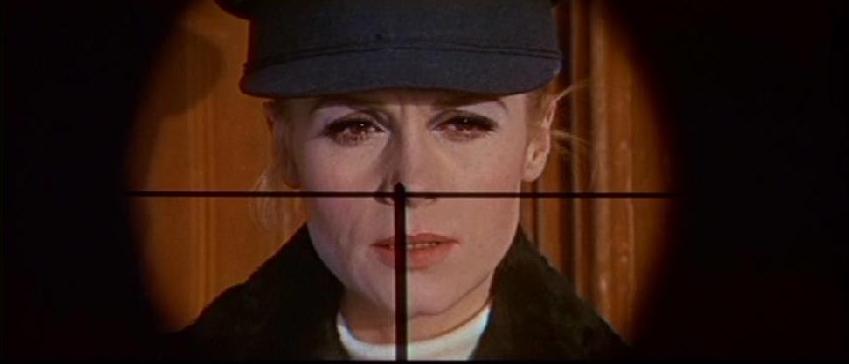
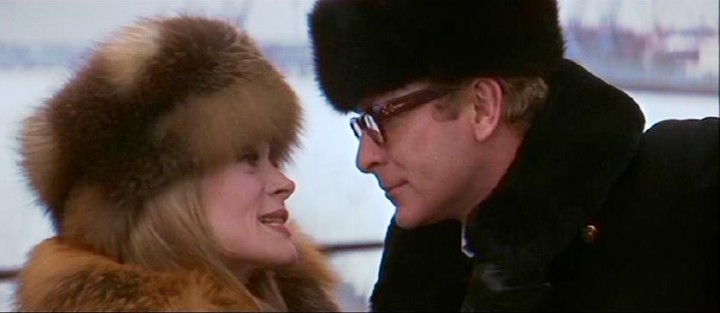
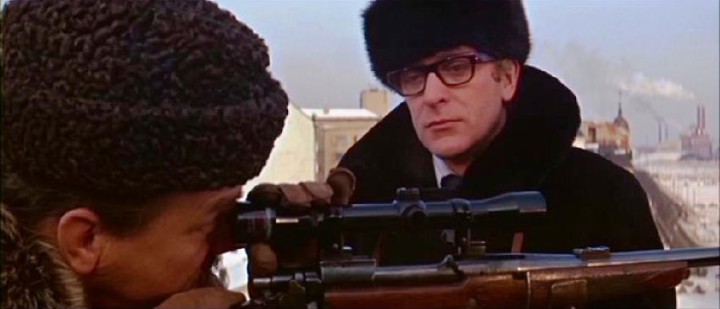
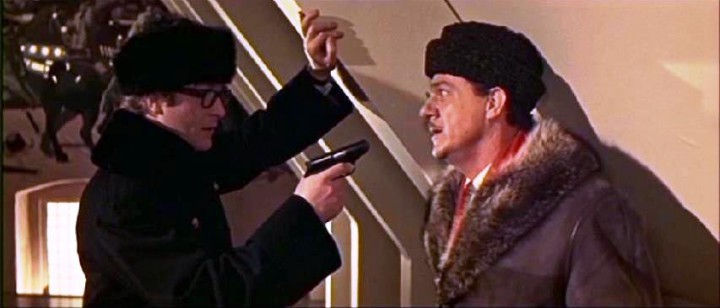
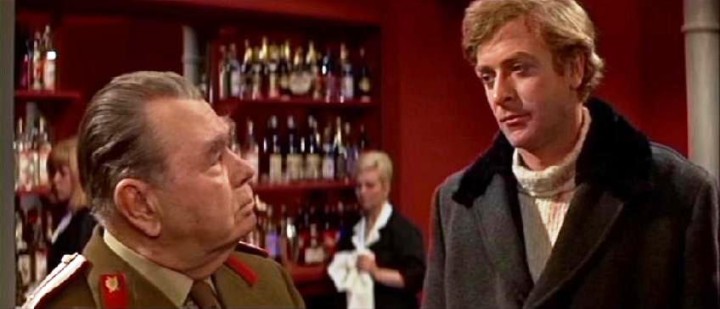
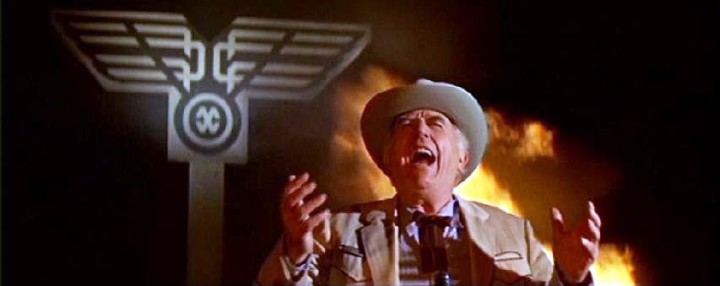
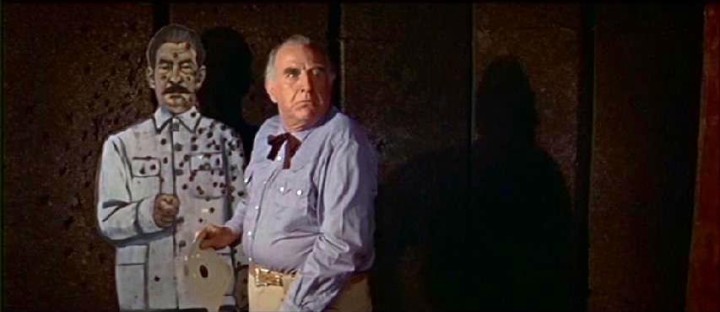
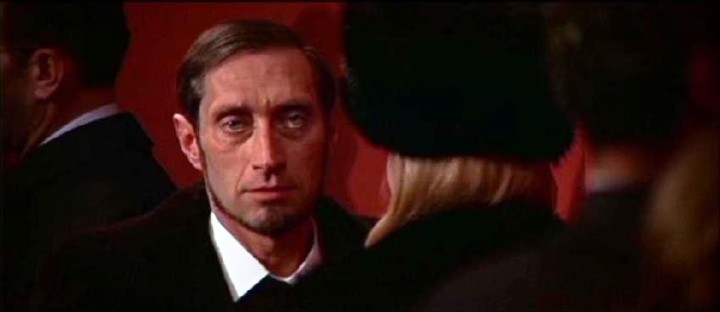
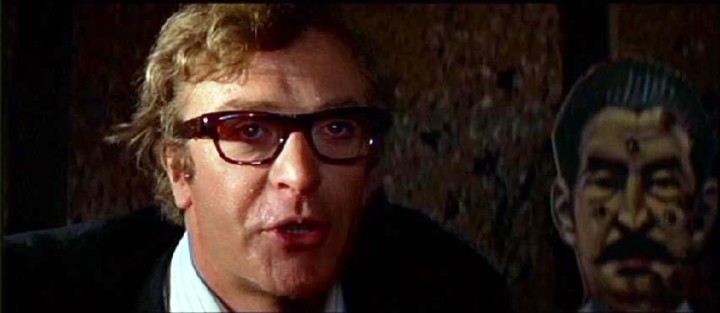
Before you comment
The comments section is here to provide a platform for civil dialogue on the issues we face together as a local community. Xpress is committed to offering this platform for all voices, but when the tone of the discussion gets nasty or strays off topic, we believe many people choose not to participate. Xpress editors are determined to moderate comments to ensure a constructive interchange is maintained. All comments judged not to be in keeping with the spirit of civil discourse will be removed and repeat violators will be banned. See here for our terms of service. Thank you for being part of this effort to promote respectful discussion.